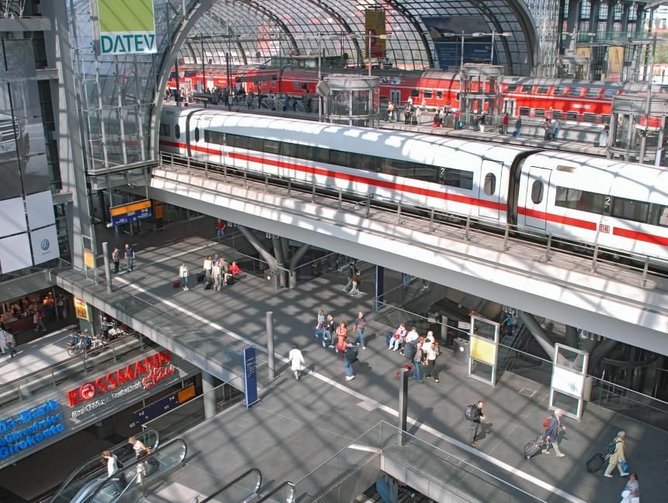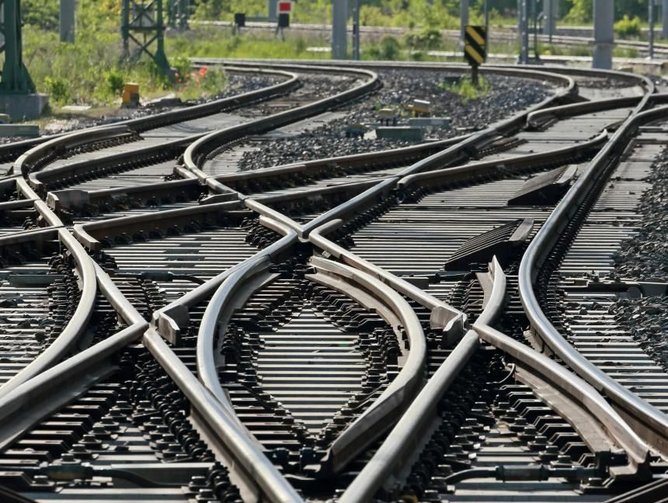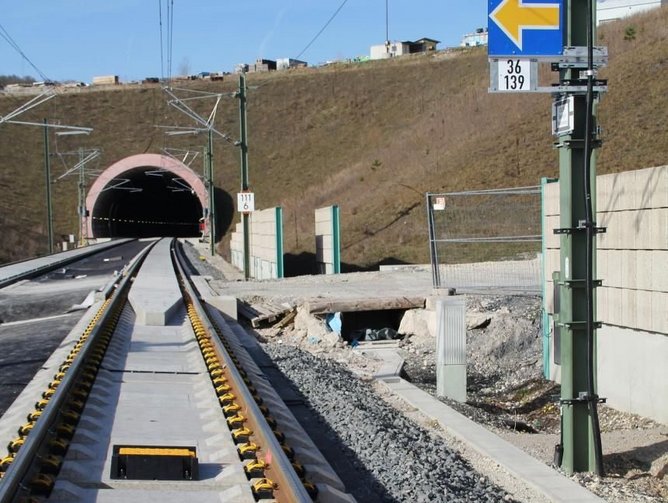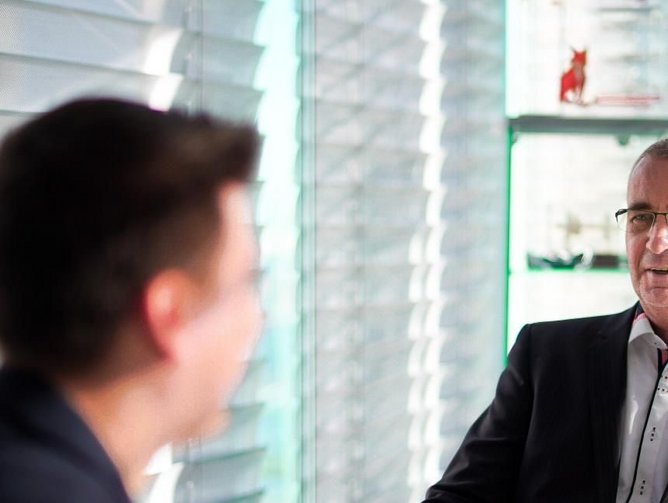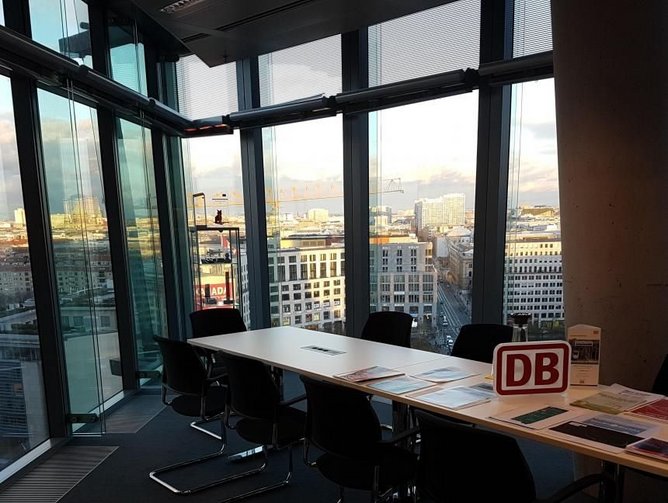Implementing disruptive technology amidst a digital transformation at Deutsche Bahn
As an international provider of mobility and logistics services operating worldwide in over 130 countries, Deutsche Bahn (DB) is a leader in rail passenger transport across Europe. Overlooking the busy streets of Berlin, Germany, from his desk in the heart of the city, Uwe Günther, Chief Procurement Officer (CPO) at DB, says his procurement strategy has transformed significantly since first joining the firm in 2007. “From the beginning, I have put an increased focus on a better structure, a consistently applied strategy and a more reliable procurement network,” says Günther. “Since I joined Deutsche Bahn as CPO, we have worked to bring the procurement function together as we needed to provide all the necessary goods for our business units in the areas of public transport, logistics and infrastructure. In parallel, we have to ensure the right quality and cost as well as enabling efficiency.”
By connecting customers to other parts of Germany and beyond, DB offers passengers a safe, efficient and affordable method of transport to allow its customers to explore all Europe and the world have to offer. Considered the longest rail network in Europe, it consists of over 33,000km and more than 74,000 switches. Transporting around 2.7bn people annually and operating approximately 250 high-speed ICE trains, Günther understands the importance of meeting the needs of DB’s customers amidst constant technology transformation. “I believe the customer has changed a lot due to the mobility of people increasing in the past few years,” Günther explains. “We’re in competition with cars and aeroplanes as well as other trains. Personally, I am convinced the train is the best way to move from one location to the other because it provides safety, quality and convenience.”
Digitalisation in the railway sector
With technology transforming the way companies across all industries conduct their business, DB has put a particular emphasis on digitalisation over the past few years. In order to ensure the right technology is being implemented, the company’s technical and commercial teams collaborate to decide on the best way to approach procurement. “We made the decision to change the direction of our digitalisation. We started with upgrading the infrastructure – bringing out new trains, improving passenger information systems and so much more related to new technologies,” explains Günther. “We also have a strong technical department, which works very well with the procurement department. Together, we’re defining which technology is the best for our trains, for our business and for the infrastructure. We have also decided jointly, from the technical and commercial sides, what the best procurement model is.”
With a clear strategy in mind, DB has established the DB2020+ plan, focusing on three key elements: becoming a profitable quality leader, a top employer and an eco-pioneer. To optimise DB’s core business and take advantage of international growth opportunities, the German mobility leader has created an additional five-point plan. “It's important to us to have a clear strategy. Our underlying strategy was DB2020+, but aiming for uncompromising excellence, we have sharpened it with the creation of our agenda for a better railway through the five-point plan. In order to achieve our goals, we must increase our punctuality in passenger and in freight transport,” says Günther. “We need to increase customer satisfaction, we will invest a greater amount of money in our infrastructure, in new lines and trains. We want to become more reliable and provide better information as well as a comfortable journey to every customer. We’re expanding our services, restructuring our rail freight activities and making our rail service greener to drive sustainability. In the end, the most important thing is to improve service quality for our customers. Every month, we set a new customer record by welcoming more passengers onboard our trains; and we want to remain a mobility leader in our field.”
As Deutsche Bahn puts sustainability at the heart of its business, it is also a proud co-founder of the industry initiative Railsponsible, which aims to promote environmentally and socially responsible supply chains throughout the railway industry. “Railsponsible forms the basis for a common understanding of what makes a sustainable supply chain. It fosters a clear focus on supplying goods and services sustainably and allows us to create the same standard across the industry. Together with the other Railsponsible members we look at how we measure the sustainability of different suppliers within the supply chain and define key performance indicators (KPIs) as we only collaborate with suppliers that fulfil our CSR requirements.”
With DB maintaining a key focus in areas such as Smart Mobility, Smart Logistics, Smart Assets and Smart Admin as part of its digitalisation roadmap, this strategy has been aligned with the Finance4DB program which helps to improve DB’s finance function and drives digitalisation. In order to make its end-to-end processes easier and its internal procurement process more efficient, DB has utilised Plan-to-Strategy, Source-to-Contract and Procure-to-Pay (P2P). “We want to improve the transparency of our internal demand and use a digital system to send out digital tenders,” says Günther. “We are currently implementing a P2P process which means designing an entirely digital process from the order request to the payment of the invoice.”
Forming key partnerships
In terms of Supplier Management, Günther lays out four key areas which the company’s procurement function manages. “First we define the quality of the service and the goods we need and check that the supplier can provide them while complying with our standards. Next, if necessary, we look at the development of suppliers in preparation for competition. We then select the best suppliers for our requirements and after the tender, we make a supplier appraisal and give every supplier a rating. If a supplier performs poorly, we consider the fourth phase, which we call the adjustment phase.”
Having established key partnerships with a range of different companies – including Ed. Züblin, Spitzke, Thales Germany, T-Systems, UWC, CRRC and EY consulting – Günther affirms how vital developing relationships with other businesses is to achieving success in the digital sphere. “In procurement, we have a clearly structured supplier management system. However, the most important thing is for there to be mutual trust and cooperation with our partners. If a supplier wins a tender with us, it usually signifies a long-term collaboration. That's standard for our partnerships,” he explains. “We have very good construction partners to build new tracks, bridges or tunnels. A long tunnel, for example, might cost over €500mn so we need to ensure we have a very competent partner which can offer not only a reliable product but also provide the best innovation whilst remaining within budget.”
Future plans
With the customer always at the forefront, Günther believes there is further room for growth and affirms that DB is seeking success through business optimisation and digital transformation. “In the end, the most important thing is to improve the satisfaction of our passengers. While we have significantly increased the efficiency of our service, there is always room for improvement,” explains Günther. The organisation is aiming for 80% punctuality across its network, and Günther stresses the importance of getting every single member of staff on board to achieve this goal. “It’s important for everyone within the company to think about what they can do to improve that KPI.”
Over the next few years, customer expectations are predicted to adapt and change further. Günther, however, remains well-positioned in his understanding of what DB must do in order to sustain success in the field. “The customer has an ever-increasing expectation for punctuality, technology and information available onboard the train and it’s vital that we reflect that. The customer is paying for the service we provide so we have to make it the best it can be.” To maintain the service with as little disruption as possible, DB is mindful of when and how it carries out improvements. “For example, we try to bundle all the different construction works we need together when making an investment in a new track. This means that we are trying to realise a tender for a track of over 100 or more kilometres with a single construction company,” explains Günther. “A good example is the new track between Berlin and Munich which we opened for operations at the end of 2017. Now, every month we have a new passenger record. We’re using more trains than ever before in that area and we’re a real competitor against aeroplanes. That's a significant success story for us.”
Looking to the future, Günther affirms his company can continue to grow over the next few years. “Deutsche Bahn will continue to be successful as the business itself and the company’s excellence are constantly growing. We are catering to more and more passengers, and our cargo business is growing too. Customer numbers in the logistics area are increasing across over 70 countries worldwide. We’re winning a greater number of tenders and as a result of that, I believe the procurement volume will increase in the upcoming years. However, that requires the development of my organisation, also in terms of digital know-how, and we would like to become a real world-class procurement entity,” he explains. “I also want procurement to become a place for the personal development of every employee. I want procurement to be the place to be where everyone can develop, increase their know-how and become a better part of our railway business at Deutsche Bahn.”
